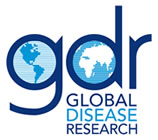History
History Two decades ago Terry Fredeking, president of Antibody Systems, was contacted by a doctor friend in South Africa and told of the successful recovery of an Ebola patient. The doctor's patient presented with symptoms of malaria and was treated for that condition. One of the common medications for treating malaria at that time was tetracycline. The patient was treated for 10 days and recovered completely. A nurse who had been attending the patient died of a viral infection that was diagnosed as Ebola. Later the patient in question was tested for Ebola virus and found to have antibodies that protected him, but the virus was not present.
Years later, Terry finally got a chance to satisfy his curiosity. At an international meeting in Vienna, Austria, Terry met a Russian scientist that worked in a level 4 laboratory in Siberia called VECTOR. The scientist had done research on Ebola and other dangerous pathogens and was inspired by Terry's story. Through the cooperation of United States State Department and the Russian government, Terry began to pursue research on the effects of tetracycline and doxycycline on viral pathogens such as Ebola, Tick Borne Encephalitis, and Dengue Hemorrhagic Fever.
After many years of laboratory and animal research it was concluded that tetracycline and doxycycline affect inflammatory cytokines that Ebola pathogens produce. Tetracycline and doxycycline are 50-year-old safe, effective, and inexpensive antibiotics that are supposed to have no effects on virus infections. The results of the Russian/American non-human laboratory work indicate cytokine control as the result of tetracycline and/or doxycycline treatment was as important to recovery of the patient as antiviral treatment.
First Human Study
The first human study was in Siberia with a tick transmitted disease called "Tick Borne Encephalitis" (TBE). The small study group consisted of 29 hospitalized patients diagnosed with TBE. The study shows the effects of tetracycline controlling the "Cytokine Storm" produced by the virus in relation to patient recovery.
At the end of the study it was found that the patients who were treated with tetracycline had a much quicker improvement of symptoms and were released from the hospital earlier. The results of this study we re published in the medical journal Clinical and Experimental Immunology 2003.
Dengue Hemorrhagic Fever
The next study with tetracycline and doxycycline was with the cooperation of the University of Mexico medical school in Merida Yucatán. The study consisted of 114 patients diagnosed with Dengue Fever (DF) or Dengue Hemorrhagic Fever(DHF), a mosquito transmitted viral infection. The focus was to determine the effects of doxycycline compared to tetracycline on the inflammatory response to highly elevated cytokines caused by the virus. The results were published in the medical journal Clinical and Developmental Immunology 2011 that proved cytokines could be controlled with doxycycline better than tetracycline during the course of the disease. The control of inflammatory cytokines is directly responsible for survival in this dangerous hemorrhagic condition.
The third study was done at the same university to determine the survivability outcome and consisted of 228 patients diagnosed with Dengue Hemorrhagic Fever. The 228 patients all received the standard care, with one half receiving doxycyline twice daily for an average of seven days . The study was sponsored by Global Disease Research and Antibody Systems. The results of this study were presented at the International Meeting on Emerging Diseases and Surveillance in Vienna Austria November 1, 2014 and are in the process of being published in a peer reviewed medical journal. This was the beginning of Global Disease Research and showed a successful outcome reducing deaths by 50% in the doxycycline treated group.
